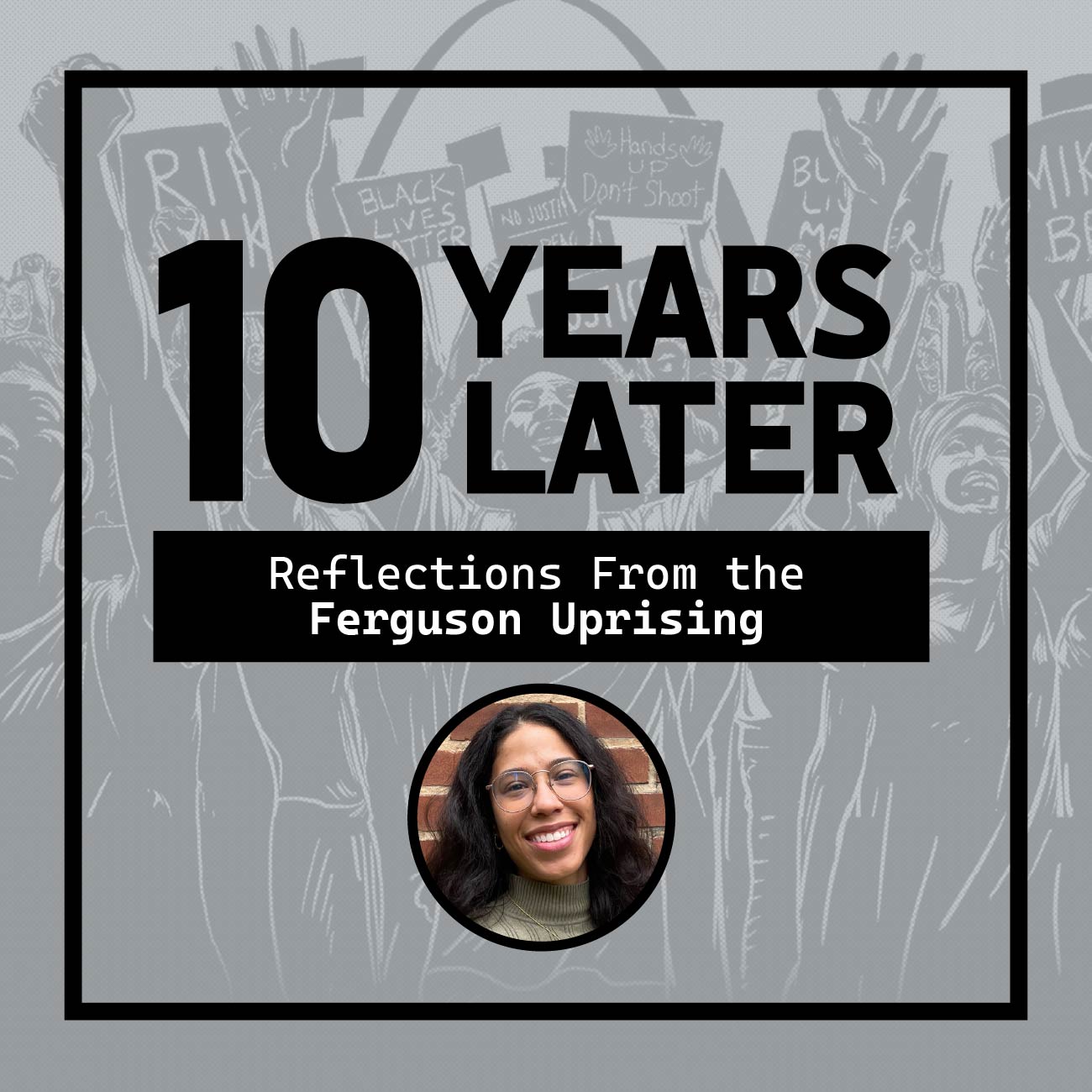When I think back on the Ferguson Uprising, what really hits me is how painful assimilation can be. I grew up in Jefferson City and by August of 2014, I had pretty much molded myself to fit in. So much so that I didn’t even realize I’d done it. Most of my friends and people in my circle were conservative, and I’d gotten pretty comfortable avoiding deep conversations about race.
Then Mike Brown was killed, and suddenly, race was everywhere. Despite my best efforts to blend in, it was clear that I didn’t quite fit. I’d given up part of myself to be accepted, and it became painfully obvious when I saw my friends’ group chat. They were throwing around nasty comments about the people in Ferguson—referring to them with “THEY” and making statements like, “Why do THEY have to ruin everything?” or “Why do THEY steal and burn things?” Who were they referring to? People like me?
August 2014 forced me to see the ugly side of the people I thought I was close to. It was a slap in the face to realize that, despite my efforts to fit in, shedding parts of my identity hadn’t earned me real respect or love. In fact, it made me feel like I had to leave behind important parts of who I was.
I was terrified to confront my friends and feared losing them, but I did it anyway. I stood up for what I knew was right and for the people who looked like me. And yes, my fears came true—I ended up distancing myself from what I thought was my community.
I chose to tell my story about the Ferguson Uprising through a reflection of the ugliness of assimilation juxtaposed with the beauty of St. Louis. I feel that it sums up what many people will say about Ferguson —a horrible ugly tragedy through which very necessary and beautiful community investments, conversations, and connections were born.
About 10 Years Later: Reflections on the Ferguson Uprising
To create our series, “10 Years Later: Reflections from the Ferguson Uprising,” we invited our staff to share their reflections and document their journeys following this pivotal event. The Ferguson Uprising not only reverberated through St. Louis but also sparked crucial work across the nation to address inequities. With the 10th anniversary of the uprising, we encourage readers to delve into these personal stories and think about their own experiences, fostering a deeper understanding of the ongoing journey toward health equity and social justice.


